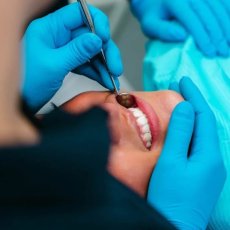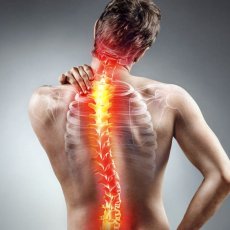ads
Emergency Dentist London
Emergency Dentist London
Our London emergency centres located by Baker Street, Earls Court, Liverpool Street and Kings Cross tube stations in the City of London offer the most comprehensive emergency dental service for the whole of the London area.
- Award winning service
- Dental sedation provider - Nervous patients are welcome
- 4 locations around London
- A true 24 Hour Service
- Experienced dentists and specialists
24/7 Emergency Hotline: 020 7486 1047
Toothache
Toothache can occur in the teeth and around the jaws, and is caused by a number of different dental issues. Usually, the pain begins suddenly, and can range from mild discomfort to severe pain. It can come and go, but it can also be constant, and made worse by eating or drinking. Additionally, toothache may get progressively worse as time goes on, so it is essential to see a dentist as soon as you can.
Why does toothache happen?
Toothache occurs when the dental pulp becomes inflamed. The dental pulp is made of delicate tissue containing blood vessels and sensitive nerves. The dental pulp can become inflamed for a number of reasons, including:
- Bacterial infection
- Tooth decay
- Receding gums
- A cracked tooth
- Broken or loose fillings
Other reasons for toothache that don’t involve the dental pulp include:
Injury to the temporomandibular joint (the joint that connects the skull to the jaw)
- Ulcers on the gums
- Sinus inflammation
- Eruption of wisdom teeth
- Impacted wisdom teeth
How is toothache treated?
How toothache is treated depends on the cause of the pain. First, your mouth is examined, and an x-ray may be taken of your teeth to help identify the issue.
If the toothache is a result of tooth decay, the decay will be removed and replaced with a filling.
If your toothache is due to a broken or loose filling, the damaged filling will be replaced, removing any decay during the procedure.
If the dental pulp is infected, a course of antibiotics or root canal treatment may be necessary. During this procedure your emergency dentist will remove the pulp, fill the space with paste and cover the rest of the tooth with a crown to seal and protect it.
Endodontics - Root Canal Treatments
Root Canal Treatment
Root canal treatment may be necessary if a patient's tooth/teeth become decayed or if an injury has occurred. In such cases the tooth pulp usually becomes damaged, which can often result in a lack of blood to the area and, in turn, infection and tooth pain. Root canal treatment is essential to prevent infection from spreading, consequently saving the need for tooth extraction.
The specialist area of root canal treatment is referred to as endodontics and in complex cases the patient may be referred to an expert endodontist. Also known as root filling treatment, this can be a lengthy procedure dependent on each patient's circumstances.
Each of our emergency dental clinics can provide root canal treatment to patients.
What is Root Canal Treatment?
Root canal treatment is usually spread over two or more stages.
To start with, an anaesthetic is issued to the patient to ease any anxiety and to make the treatment as pain-free and comfortable as possible. The tooth is then isolated through the use of a rubber dam. This is used for sterilisation purposes and to ensure no more bacteria can enter into the infected tooth.
Next, we use high-tech equipment in the form of a flexible titanium rotary file to shape the canals. Titanium is noted to be of a good biocompatible level with humans, and this material also minimises the risk of infection or possible fractures to the teeth during treatment. 24 hour emergency dentists use ultra-modern apex locators to identify the exact length of the canal; they also use modern microscopic equipment to ensure the canals are perfectly shaped. The dentist will then disinfect the tooth with powerful disinfectant to ensure sanitation, further reducing any chance of infection.
Finally, the root canal filling material, known as gutta percha, is used to fill the root canal. This enables the tooth to remain healthy after treatment is completed.
Pain may be felt at the end of the procedure, however strong painkillers can ease this and the pain will only be temporary.
Root Canal Treatment Cost
Your emergency dentist will be able to provide you with details concerning the cost of root canal treatment. The cost will depend on the complexity of each patient's case and the number of root canals required.
Wisdom teeth and dental extractions
Commonly the wisdom teeth, in an attempt to erupt, will be prevented in doing so by the teeth in front. As such, the wisdom teeth will remain partially or completely below the line of the gum (also called impaction). This can lead to an infection around the wisdom tooth or lead problems with adjacent teeth.
We offer 24h round the clock wisdom teeth extractions that are carried out by specialist oral surgeons.
We also have a Sirona Digital OPG machine for digital X-rays which enables us to carry out comprehensive diagnostics prior to any teeth extractions.
Sedation is offered for teeth extractions if required.
There are specific guidelines for the removal of these impacted wisdom teeth which the dentist will advise you on.
The procedure requires the gum around the tooth to be lifted back and the bone around the tooth to be selectively removed to allow the wisdom tooth to be removed.
Broken Tooth
A broken or chipped tooth is the most common dental emergency. If you have a broken tooth, you must visit an emergency dentist immediately to prevent further damage.
In the event of a broken tooth, you must not attempt to implant the broken fragment back into the gum. Instead, place it in a clean container and make sure the fragment is covered with saliva or milk until you can see your emergency dentist. The fragment may be used to repair your tooth.
How are broken teeth treated?
You may have chipped the edge of one of your front teeth. If this is the case, we would typically smooth out the uneven edge and replace the missing part with composite.
If a molar is broken, a section of the chewing surface may have been broken away. In this case, we will replace the missing section with a crown or filling.
Occasionally, a break can cause damage to the dental pulp, which houses a network of nerves and blood vessels. In this instance, root canal treatment may be necessary in order to remove damaged pulp to prevent infection. After the surgery, we will fill the space and seal the tooth with a crown or filling to protect it.
Lost Tooth
Losing a tooth is a common dental emergency, especially amongst the elderly. It is important that a dentist is seen as a priority as this can impact the health of all teeth that lie on the same arch.
If you still have the missing tooth
If you still have the tooth that has fallen out, it’s essential that you see an emergency dentist immediately; the sooner the tooth is re-implanted, the higher the chance of it being re-embedded in the gum. Before you see the dentist, please attempt the steps below:
- Trying not to touch the root, hold the tooth by the crown.
- Rinse the tooth with a saltwater solution or milk, and attempt to place the tooth back into its socket as soon as you can.
- When you’ve done this, bite down onto a wet tea bag or a piece of clean material (a handkerchief, for example). This will keep the tooth in place.
- If you are unable to do this, hold it between your gum and cheek until you are able to see the dentist. Alternatively, place the tooth in a container, covering it with a small amount of saliva or milk.
- When you get to see the emergency dentist, they will plan to re-implant the tooth as soon as possible. Preferably, teeth should be re-attached within an hour of being knocked out.
Your dentist will splint the missing tooth to the teeth next to it with either a thin piece of wire or clear plastic, so it can be held in place as it heals. Your dentist will advice you on how long this needs to be in place.
If the tooth is lost
If the tooth has been lost, it must be replaced as soon as possible.
The following treatments are common ways to replace missing teeth:
- Dental implants: these are artificial roots attached permanently to the jawbone with the use of a titanium screw. Your dentist will drill into the jawbone to do this, and you will be administered with a local anaesthetic.
- Partial dentures: these are removable devices that are clipped onto the surrounding teeth using metal clasps.
- Dental bridges: a dental bridge is an artificial tooth that is fixed permanently to the teeth at either side of the gap left by the lost tooth. Dental cement is used to fix a bridge in place.
Not only do these procedures improve the aesthetics of your smile, they also improve the functionality of your teeth. If a lost tooth isn’t replaced, your dental health as a whole will suffer. The remaining teeth, without the support of the missing tooth, will have to handle much more pressure when biting.
Broken Dentures London
Broken dentures can cause disruption to many important aspects of everyday life, as they have to go about their daily business without functional teeth. Accidents happen though, which is why it’s important to know what to do if your denture breaks.
Broken dentures can cause massive disruption to a denture wearer’s life and is thus considered a dental emergency. Without dentures, speak and eating will be affected. In turn, self-confidence will plummet, with further damage to mental and emotional wellbeing.
Dentures can break for a variety of reasons, despite withstanding the pressure of the jawbone.
For example, a denture is vulnerable to the following accidents:
- Dropping your dentures onto a hard surface
- Heat damage, if boiling water is used during cleaning
What should I do if my denture breaks?
If your denture breaks, you must see a dentist immediately for repair. There is a strong chance that your denture may break during hours that your dentist is typically closed. For situations like these, we offer a 24-hour emergency denture repair clinic, repairing your broken dentures within the same day. If, however, the damage is extensive, more time may be necessary to repair your dentures.
If you have broken dentures, call 020 8748 9365 now to book your emergency appointment.
Contact us:
For emergency treatment please call us on
020 8748 9365
020 7486 1047
info@24hour-emergencydentist.co.uk
Our Locations:
Baker Street Dental Clinic
Dr Watson Chambers, 102 Baker Street
London, W1U 6FY
020 8748 9365
- Samantha
- Location
- London
- Country
- United Kingdom
- Address
- Dr Watson Chambers, 102 Baker Street
London, W1U 6FY
Locate on map - Phone number
- Show Phone
- Show E-mailThis email address is being protected from spambots. You need JavaScript enabled to view it.
- Ad Type
- Job search
- Category
- Health and Beauty Services
- Subcategory
- Physicians
- Date added
-
Sunday, 31 March 2019
6 years 11 months ago - Views
- 5063
- Id
- 1844















 Vectora Design
Vectora Design